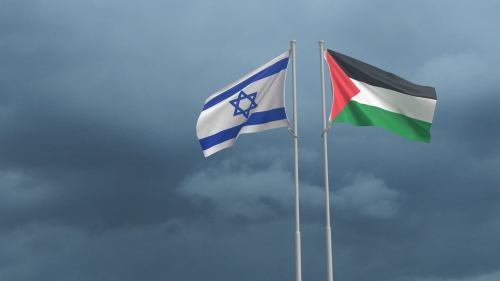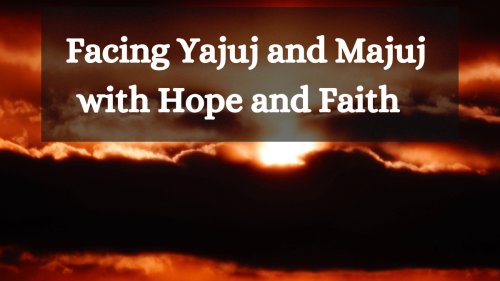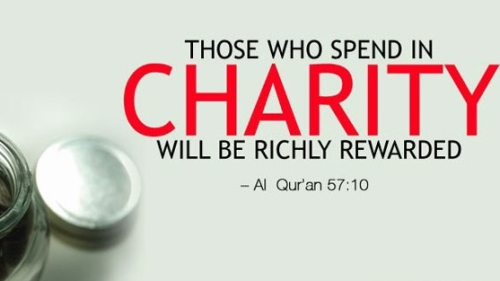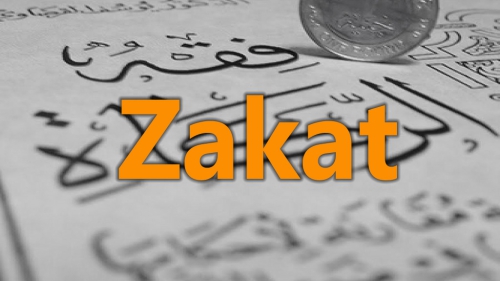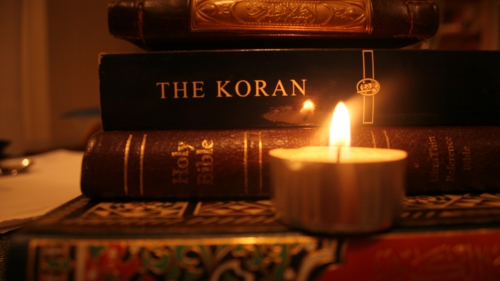Food for Religious Thought on Thanksgiving Day

People around the world are becoming more angry, stressed and worried, according to a 2019 Gallup Global Emotions Report survey, of some 150,000 people interviewed in over 140 countries.
Greece, which has suffered more than 5 years of high unemployment had the most stressed population in the world; with 59% saying they experienced stress on the day before the poll.
In the USA, which has had more than 5 years of very low unemployment; 55% of US adults said they were stressed.
The study also found that younger Americans between the ages of 15 and 49 were among the most stressed. Roughly two in three of those younger than 50 said they experienced stress a lot, about half said they felt worried a lot and at least one in four or more felt anger a lot.
Suicide is the second leading cause of death among people aged 10 to 24, according to the U.S. Centers for Disease Control and Prevention. The suicide rate among this age group increased 56% between 2007 and 2017, according to a CDC study published in October 2019.
The 55% of Americans who experienced stress was one of the highest rates out of the 143 countries studied; and it beat the global average (35%) by a full 20 percentage points.
Money also played a role when it came to people's worry and stress levels; 56 percent of Americans in the poorest group said they worried a lot, compared with 41 percent in the richest group. But most people would have expected the gap between the richest 20 percent and the poorest 20 percent to be much larger than 15 points.
One way to explain why 40 percent of rich Americans worry so much, is that they take for granted all the advantages they and their family already have. Also, many very successful people believe that their success is entirely due to their own efforts; and as self-made men they worship their achievements; instead of expressing gratitude to others, and especially to God.
Most religions have long stressed the virtue of daily expressions of gratitude to God. The Qur’an states that Prophet Sulaiman said: “. . . ‘This is by the Grace of my Lord to test me whether I am grateful or ungrateful! And whoever is grateful, truly, his gratitude is (good) for his own self, and whoever is ungrateful, (it is his own loss). Certainly! My Lord is Rich, Bountiful.’” (27:40)
And as Prophet David, Prophet Solomon’s father said in his Zabur (Psalms 103:1-4) "Bless the Lord, O my soul, and all that is within me, bless his holy name! Bless the Lord, O my soul, and forget not all his benefits, who forgives all your iniquity, who heals all your diseases, who redeems your life from the pit, who crowns you with steadfast love and mercy.”
All humans owe God for all the blessings we have received; and thus, we must always behave in unselfish ways. This will also benefit us in the long run for ingrates always hurt themselves in the long run. As Allah says: “And (remember) when your Lord proclaimed: ‘If you give thanks (by words and good deeds), I will give you more; but if you are ingrates, verily, My punishment is indeed severe.’” (14:7)
One way the Jewish tradition has taught the value of gratitude to Jews is to teach the importance of saying blessings praising God for the many things we experience, both in our ordinary daily and weekly life, and at occasional extraordinary times.
It is a Mitsvah (Jewish religious duty) to say blessings praising God at every meal over food and drink. Every morning when we wake up, it is a Mitsvah to say several blessings because various parts of our mind and body still work. During morning and evening prayers 18 blessings are said, and there are blessings for the weekly celebration of the Sabbath.
There are also blessings to say for special occasions for our sages urged us to thank God for as many blessings as we can, since the more blessings you can say, the more blessed you are. Indeed, Jewish tradition maintains that everyone who is able to say 100 blessings a day is truly blessed.
Among the special occasion blessings, there is a blessing for seeing a non-Jewish sage and another one for seeing a Jewish sage. There is a blessing for hearing good news and another one for hearing bad news in accordance with Rabbi Huna’s view that we need both joy and suffering to increase our mental and spiritual resilience; and experience the varied meanings of life’s tests.
Here are a few examples of blessings for special occasions:
On beholding fragrant trees: Praised be Adonai our God, Ruler of space and time, creator of fragrant trees.
On seeing trees in blossom: Praised be Adonai our God, Ruler of space and time, whose world lacks nothing we need, who has fashioned goodly creatures and lovely trees that enchant the heart.
On seeing an unusual looking person: Praised be Adonai our God, Ruler of space and time, who makes every person unique.
On the Divine value of pluralism and human variety: Praised be Adonai our God, Ruler of space and time, the Sage of esoterica, for just as no person's opinion is like that of another, so their faces are different from one another.
On seeing evidence of charitable efforts: Praised be Adonai our God, ruler of space and time, who clothes the naked.
On seeing people who have overcome adversity: Praised be Adonai our God, ruler of space and time, who gives strength to the weary.
To show our appreciation of all of God’s gifts is the greatest sign of praising God. To be ungrateful and unappreciative is a great sin that leads to suffering, negativity, and anger. The Qur’an teaches all of us clearly that one of the 99 names of Allah is Al Shakur— "The Appreciative One."
So if the One who has created the universe can appreciate our often inadequate human efforts to do what is good; how much more should we give thanks for all we have received, and all the positive things that we have produced; as the Qur'an states about a God who is “appreciative": “If anyone willingly does what is good, God is appreciative and cognizant.” (Quran 2:158) and “Why would God punish you if you are grateful and faithful, since God is most appreciative, most cognizant?” (Qur'an 4:147)
Be hopeful! The year 2020 will be a good one for America and the Middle East.
Allen S. Maller is an ordained Reform Rabbi who retired in 2006 after 39 years as the Rabbi of Temple Akiba in Culver City, California. His web site is: www.rabbimaller.com. Rabbi Maller blogs in the Times of Israel. His book ‘Judaism and Islam as Synergistic Monotheisms: A Reform Rabbi's Reflections on the Profound Connectedness of Islam and Judaism’ (31 articles previously published by Islamic web sites) is for sale ($15) on Amazon.
Topics: Interfaith, Judaism, Poverty And Welfare, Thanksgiving, Wealth Values: Contentment, Gratitude, Humility
Views: 1056
Related Suggestions








